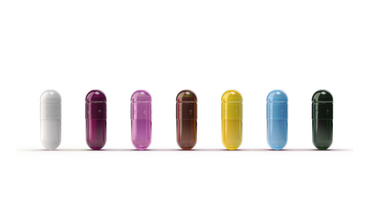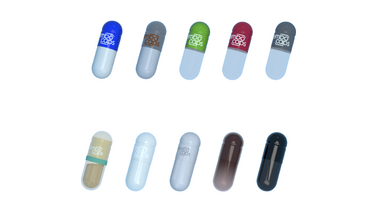
Improving Transparency in HPMC Capsules
Unethical practices and forced labor exist in HPMC supply chains. Here’s what can be done about it.
Stephanie Vine | | News

You’ve heard of fair trade coffee and other foodstuffs, but what about fair trade HPMC capsules? A company called Embocaps is hoping to push the concept in the pharma industry.
“The capsule industries are facing increasing pressure from consumers to disclose the origins of their raw materials,” explains Chris Kotevich, Head of Scientific and Technical Affairs. “Many consumers are now more aware that certain sourcing practices, such as forced labor, can be hidden in complex supply chains. For manufacturers, the main challenge lies in verifying every link in these chains to ensure that all materials are ethically sourced and to uphold transparency without sacrificing competitiveness.”

In supply chains, it’s common for manufacturers to source ingredients, such as HPMC, solely based on price. In the globalized world, however, there is a danger of forced labor or unethical practices being involved. Embocaps has launched the Fair Trade Capsules Mark to provide a framework for transparent and ethical HPMC sourcing. Initially, the mark will be for supplements, but the company is also advocating for the adoption of fair trade standards for over-the-counter and prescription medications.
Kotevich says, “One of the biggest challenges in achieving full transparency is the complexity of supply chains, particularly when sourcing involves multiple tiers or suppliers across different countries. Many raw materials, including HPMC’s cellulose base, may pass through various stages of processing, making it difficult to track and verify each step. Manufacturers may also encounter pushback from certain suppliers unwilling to disclose their own sourcing practices. Full transparency requires both rigorous tracking systems and a willingness across the supply chain to uphold ethical standards.”

Any company can use the mark, but must have a third-party audit that verifies the ethical sourcing of raw materials and confirms adherence to transparent supply chain practices. Additionally, companies must publicly disclose their supply chains.
“To drive ethical sourcing in pharmaceuticals, we need stronger collaboration on developing industry-wide certifications and transparency requirements. Partnering with regulatory bodies, industry associations, and other capsule manufacturers can create a unified standard that minimizes unethical practices and builds consumer trust,” says Kotevich. “Knowledge sharing and open dialogues around best practices in ethical sourcing will also be needed to promote widespread adoption of these standards.”
Images supplied by Embocaps

Making great scientific magazines isn’t just about delivering knowledge and high quality content; it’s also about packaging these in the right words to ensure that someone is truly inspired by a topic. My passion is ensuring that our authors’ expertise is presented as a seamless and enjoyable reading experience, whether in print, in digital or on social media. I’ve spent fourteen years writing and editing features for scientific and manufacturing publications, and in making this content engaging and accessible without sacrificing its scientific integrity. There is nothing better than a magazine with great content that feels great to read.



















